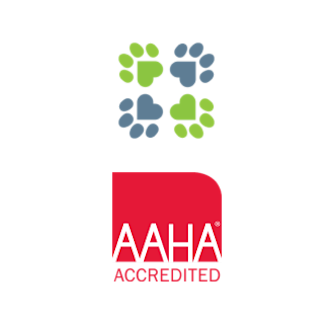Preparing Your Pet for Boarding
Veterinary Services

Here is our guide to preparing your pet for boarding.
Pre-boarding checklist
Vaccinations: make sure your pet is up to date with all his vaccinations. Your kennel may ask to see proof of this before accepting your pet to stay. Some kennels may also request a clean fecal report as proof that your animal doesn’t have worms.
Flea prevention: most kennels will require you to treat your pet with a flea preventative ahead of their stay. Do this just a few days before your pet goes into boarding.
Visit your vet for a check-up: even if your kennel doesn’t require veterinary clearance, it is a good idea to have your vet give your pet a thorough check-up before he goes into kennels.
Check your medication supplies: ensure that you have sufficient medication for the duration of your pet’s stay at kennels. Always take the prescription in the original packaging so that the kennel staff has the full information on the medication and dosage in case of clarification or problems.
Bring any additional items you may need: if your pet has special dietary requirements, or is taking in bedding or a special toy or blanket from home then ensure this is packed and ready to take with you.
Provide your contact information: don’t forget to provide the kennel with the best numbers to reach you. You may also want to program their numbers into your cell so you can check in on how your pet is doing while you're away.
Read Boarding Policies: make sure you read over the boarding policies to ensure you follow them for the best boarding policies. Our boarding policies can be found here.
Preparing your pet
If your pet is new to boarding then you may wish to speak to your kennel about arranging one or two short ‘settling in’ visits where you can take your pet in for a few hours at a time so that they can get used to their surroundings. As a general rule, dogs usually enjoy their time in kennels as they get to experience a change of scenery and social interaction with new humans and animals. The same can be said for younger cats who love the social side of boarding. Older cats can act impartially to being put into boarding, and while they often aren’t sociable, they are content just with relaxing and observing their new surroundings. Remember first and foremost that pets can pick up on their owner’s emotional state. Therefore we highly advise against any prolonged, emotional farewell scenes at the kennels as this could make your pet highly antagonized or anxious about their stay. If you are worried about your pet settling in, contact the kennel after the first 24 hours of your stay so that they can reassure you.
Picking up your pet
Arrange a suitable pickup time in advance of your return and get ready to meet your pet who will be excited to see you! Ask plenty of questions about the time your pet spent in kennels. Did he adapt well? Did he eat well? Was he sociable? Your kennel staff should be more than happy to answer any questions that you may have. While cats usually adapt to going home with the same laid-back attitude that they had going into kennels, dogs can be extremely excitable. It is therefore usually recommended that you do not give your dog anything to eat or drink for at least 3 or 4 hours after they return home or until they appear sufficiently calm. Many dogs display different behavior for the first few days of being back at home. They often sleep more as they are back in a quiet and relaxed environment. However, if you are at all concerned about the behavior of your pet, contact your kennel operator to discuss your worries. Finding a kennel that suits your pet is critical for both their health and enjoyment and for yours. Developing a good relationship with a kennel and taking the necessary preparation steps will help make the transition between home and kennels much easier for your family and your pet.

